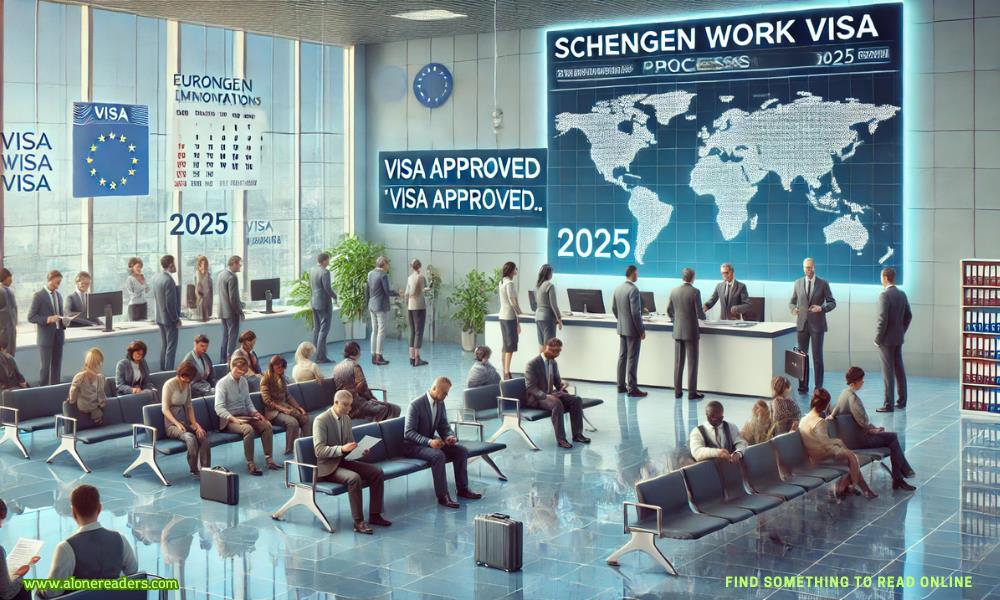
The Schengen Work Visa is a gateway for professionals wishing to work in one or several countries within the Schengen Area. As global mobility increases and the demand for international talent grows, understanding the intricacies of visa processing times becomes essential. In this article, we delve into what applicants should expect in 2025, discussing requirements, application procedures, processing durations, fees, and other crucial details. We also highlight common pitfalls and offer useful tips to help smooth your visa application journey.
Visa Overview
The Schengen Work Visa permits qualified professionals to work within the Schengen Area—a group of European nations that have abolished internal borders for short-term travel and business. Although the Schengen Visa is often associated with tourism, the work visa is designed specifically for individuals who have secured employment or wish to explore job opportunities within these countries. With 2025 on the horizon, changes in processing times and application requirements are anticipated as governments modernize their systems and improve their efficiency.
Why a Schengen Work Visa?
For many professionals, the allure of the European work environment is immense. The visa not only allows the freedom to work across borders but also provides an opportunity to experience diverse cultures and economies. Additionally, with streamlined border controls, the Schengen Work Visa can be a more attractive option compared to traditional national work permits.
Basic Requirements
Before applying, it is important to understand the eligibility criteria. Although specific requirements may vary slightly between Schengen countries, some common elements include:
Supporting Documents
Applicants should prepare a comprehensive set of documents, which may include:
Ensuring that all documents are up-to-date and correctly notarized can greatly influence processing times. For further details, visit the European Commission – Borders and Visas.
Step-by-Step Application
The application process for a Schengen Work Visa is similar across member states but can differ in minor procedural aspects. Here’s a general outline of the process:
Step 1: Gather Documentation
Document Collection: Assemble all required documents. This includes your passport, employment contract, academic and professional certificates, proof of insurance, and financial statements.
Step 2: Schedule an Appointment
Booking the Interview: Most embassies and consulates require an appointment to submit your application and undergo an interview. Check the relevant embassy website for available dates and times.
Step 3: Application Submission
In-Person Submission: Submit your complete application package at the designated embassy or visa application center.
Step 4: Interview and Biometrics
Interview Process: Attend an interview where you may be asked questions regarding your employment and qualifications. Biometrics (fingerprints and a photograph) are typically collected during this step.
Step 5: Visa Decision and Collection
Processing and Decision: After processing, you will be notified of the decision. If approved, you can collect your visa either in person or via courier, depending on the embassy’s procedures.
For more detailed guidelines, check out the official Visa Policy – European Commission.
General Processing Times
As of 2025, Schengen Work Visa processing times can vary from country to country. Typically, processing may take anywhere from 15 to 45 calendar days. However, factors such as seasonal demand, the volume of applications, and geopolitical developments may affect these timelines.
Factors Influencing Processing Durations
Several factors can either accelerate or delay the processing time of your application:
Anticipated Changes in 2025
With advancements in digital processing and increased coordination among Schengen states, many expect processing times to decrease in 2025. Several governments are investing in improved visa management systems aimed at reducing backlogs and streamlining the application process. Nonetheless, applicants are advised to apply well in advance of their planned start date.
Visa Duration
The duration of a Schengen Work Visa typically depends on the employment contract. Common durations include:
Visa Fees
Visa fees vary depending on the country and the type of work permit being applied for. Generally, applicants should expect fees in the range of €60 to €150. Note that additional service fees may apply if you use third-party visa application centers. It is essential to verify the exact fee structure on the relevant embassy’s website before submitting your application.
Validity and Renewal
Once granted, the Schengen Work Visa allows you to reside and work legally within the Schengen Area. Some visas may be renewable or convertible into long-term residence permits, subject to further evaluation of your employment status and compliance with local immigration laws.
Important Cautions
Applicants should remain cautious of several potential pitfalls during the application process:
Common Pitfalls
Be Proactive and Organized
Communication is Key
Final Thoughts
Navigating the Schengen Work Visa application process in 2025 will require diligence, careful preparation, and adherence to evolving guidelines. The promise of working in one of the world’s most dynamic regions comes with its share of bureaucratic hurdles, but with proper planning, these obstacles can be overcome. Whether you are embarking on a short-term assignment or a long-term career move, understanding the visa requirements, processing times, fees, and potential pitfalls is essential.
As governments modernize their application processes and enhance security protocols, applicants may benefit from shorter processing times. However, the onus remains on you to ensure that every document is accurate, complete, and submitted well in advance of your intended travel date.
In summary, the Schengen Work Visa offers an exciting opportunity to work and live in Europe, provided that you navigate the process with care. With the right preparation and a thorough understanding of the requirements, you can look forward to a smoother application experience in 2025. Remember to always consult official sources and seek professional advice when needed, ensuring that your transition into the European workforce is as seamless as possible.
Embrace the journey ahead, prepare meticulously, and take advantage of the opportunities that a Schengen Work Visa can unlock. Whether you are an experienced professional or a newcomer to international work, the European market awaits your talents and ambitions.